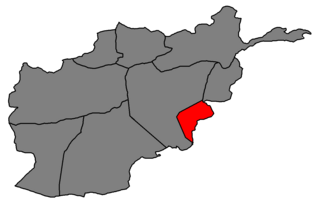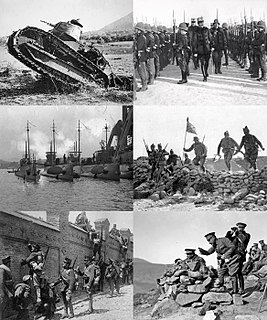 W
WThe August Uprising was an unsuccessful insurrection against Soviet rule in the Georgian Soviet Socialist Republic from late August to early September 1924.
 W
WIkhwan raids on Transjordan were a series of plunders by the Ikhwan, irregular Arab tribesmen of Najd, on Transjordan between 1922 and 1924. The repeated Wahhabi incursions from Najd into southern parts of his territory were the most serious threat to emir Abdullah's position in Transjordan. The emir was powerless to repel those raids by himself, thus the British maintained a military base, with a small air force, at Marka, close to Amman. The British military force was the primary obstacle against the Ikhwan, helping emir Abdullah to secure his rule over Transjordan.
 W
WThe Army Mutiny was an Irish Army crisis in March 1924 provoked by a proposed reduction in army numbers in the immediate post-Civil War period. A second grievance concerned the handling of the Northern Boundary problem. As the prelude to a coup d'état, the decisions made by influential politicians and soldiers at the time have continuing significance for the Government of Ireland.
 W
WThe Khost rebellion, also known as the 1924 Mangal uprising, the Khost revolt or the Mangal Revolt was an uprising against the Westernization and modernizing reforms of Afghanistan’s king, Amanullah Khan. The uprising was launched in Southern Province, Afghanistan, and lasted from March 1924 to January 1925. It was fought by the Mangal Pashtun tribe, later joined by the Sulaiman Khel, Ali Khel, Jaji, Jadran and Ahmadzai tribes. After causing the death of over 14,000 Afghans, the revolt was finally quelled in January 1925.
 W
WMahmud Barzanji revolts were a series of armed uprisings by Kurdish Sheykh Mahmud Barzanji against the Iraqi authority in newly conquered British Mesopotamia and later the British Mandate in Iraq. Following his first insurrection in May 1919, Sheykh Mahmud was imprisoned and eventually exiled to India for a one-year period. When returning, he was once again appointed a governor, but shortly revolted again declaring himself as the ruler of the Kingdom of Kurdistan. The Kingdom of Kurdistan lasted from September 1922 – July 1924. With British forces greatly exceeding his in ammunition and training, the defeat finally subdued the region to central British Iraqi rule in 1924. Sheykh Mahmud retreated into mountains, and eventually reached terms with the independent Kingdom of Iraq in 1932, over his return from the underground. Sheykh Mahmud revolts are considered the first chapter of the modern Iraqi–Kurdish conflict.
 W
WThe Rif War was an armed conflict fought from 1920 to 1927 between the colonial power Spain and the Berber tribes of the Rif mountainous region of Morocco. Led by Abd el-Krim, the Riffians at first inflicted several defeats on the Spanish forces by using guerrilla tactics and captured European weapons. After France's military intervention against Abd el-Krim's forces and the major landing of Spanish troops at Al Hoceima, considered the first amphibious landing in history to involve the use of tanks and aircraft, Abd el-Krim surrendered to the French and was taken into exile.
 W
WSheikh Khazal rebellion refers to the 1924 Arab separatist uprising by Khazal al-Kabi, the Sheikh of Mohammerah, in Iranian Khuzestan. The rebellion was quickly and efficiently suppressed by Reza Pahlavi with minimal casualties, subduing the Bakhtiari tribes allied with Sheikh Khazal and resulting in his surrender.
 W
WThe Tatarbunary uprising was a Bolshevik-inspired peasant revolt that took place on 15–18 September 1924, in and around the town of Tatarbunary in Budjak (Bessarabia), then part of Romania, now part of Odessa Oblast, Ukraine. It was led by a pro-Soviet revolutionary committee which called for the creation of a Moldavian Soviet Republic and an end to "Romanian occupation".